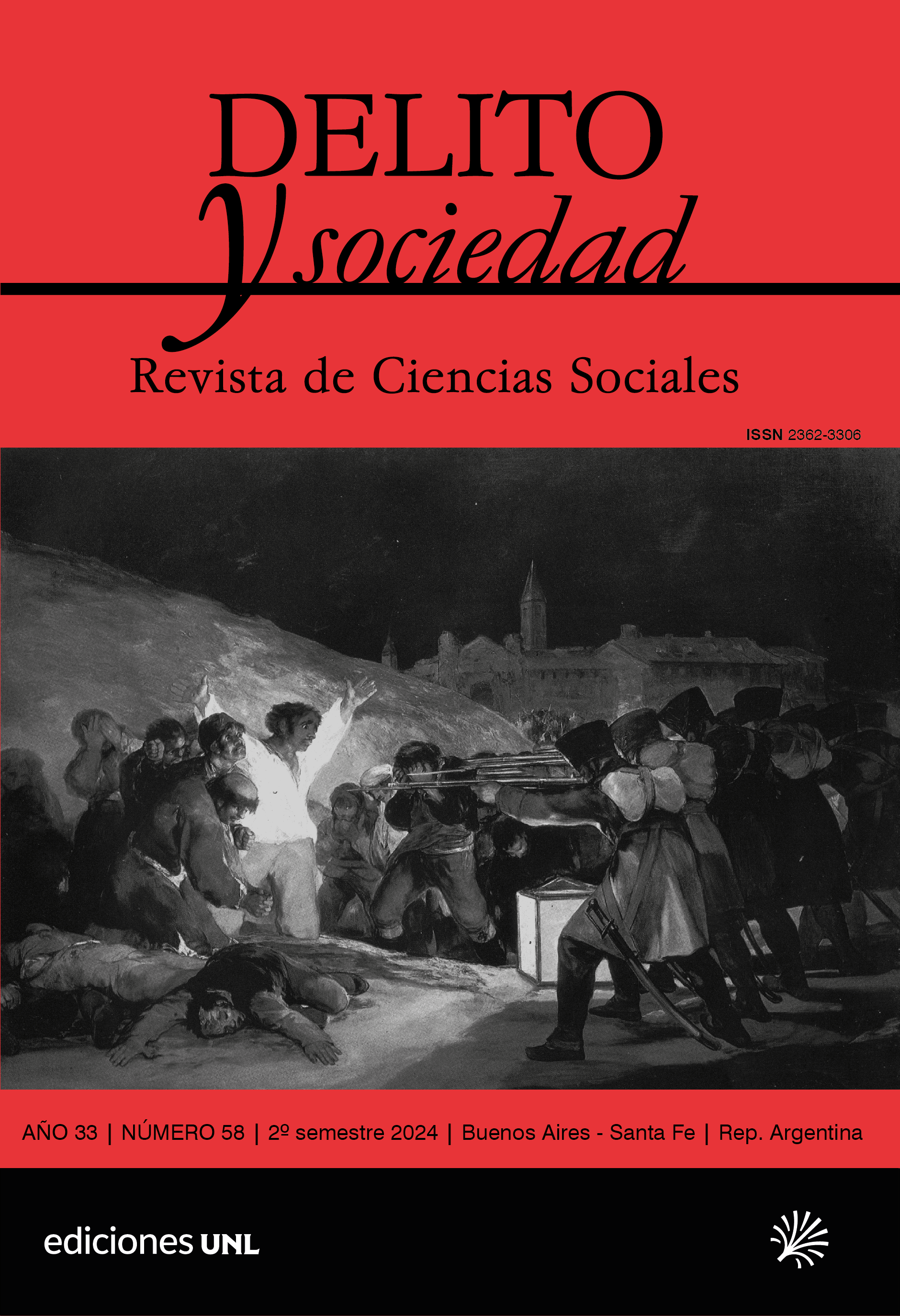From «Fútbol para Todos» to the prohibition of away fans: analysis of sports security management during the governments of Cristina Fernández de Kirchner (2007-2015)
DOI:
https://doi.org/10.14409/dys.2024.58.e0121Keywords:
Violence, Football, Sports security, ArgentinaAbstract
This article addresses, in a chronological and procedural approach, the relationship between football, security and the State. Specifically, this work reconstructs, describes, and problematizes the public management of sports security during the two terms of Cristina Fernández de Kirchner's government (2007-2015). The focus of the text is centered on the policies, devices and strategies implemented by state agencies and actors to regulate and manage violence in football, a phenomenon conceived as a public issue in Argentina. The research supporting this text was conducted for the author's doctoral thesis and methodologically employs a combination of quantitative and qualitative approaches, including: quantification of violent incidents, analysis of legislative frameworks, documentary analysis, observation in football stadiums, and interviews. The theoretical and conceptual approach comes from the intersection between the field of security/insecurity and socio-anthropological studies on violence in football. Among the main results, the article reveals the "political commodity" nature of violence in football, the ideologically opposed security approaches within the same political government, the tension between civilian and police knowledge, and the hyper-centrality of hooligan groups in sports security management.







